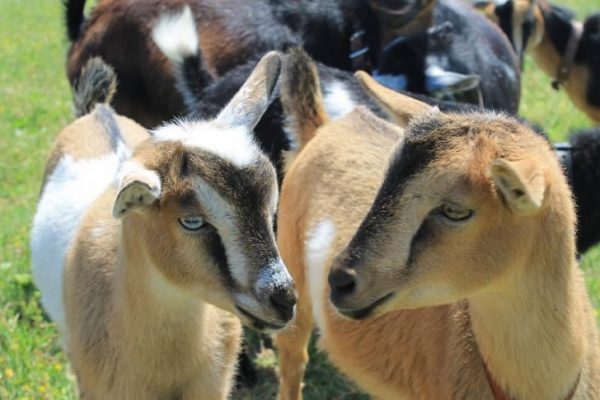Goats have always been one of the preferred sources of animal protein for Nigerians. And there is more to goats than just their meat. For many tanneries in the country, goat skin is a key material used in the production of leather. Milk obtained from goats are also processed into butter and cheese, and their dung is considered good manure for improving soil fertility. Demand for goat meat is highest in festive seasons which take place at different times of the year, meaning that sales for it could peak more than once a year. All of these make goat farming a potentially profitable business.
The demand for goats in Nigeria is huge and is expected to continue to grow as the population of the country swells. The extent of the deficit in supply for products derived from goats is underlined by the recent trend of importation of goats from countries such as Chad, Niger and South Africa. If you are able to play a role in closing this supply gap, you will almost certainly make a good fortune out of it.
Here are the steps you need to take in order to cash in on the booming trade in goats and products derivable from them.
1. Learn about goats and goat farming from the right sources. There are two components to this: the experienced goat farmer, and goat literature. Interact with those who have “gone ahead of you” in the rearing of goats. Their practical experience is invaluable, and can hardly be adequately represented in any textbook. Regularly observe their work, and ask questions about things you need to understand better about goat farming. You can also access a vast body of literature on goats and goat farming written by experts on the web. Devour as much print and electronic media material on these animals as you can. Inch towards becoming an authority on goats yourself, and get to know what it requires to set up and successfully run a goat farm of your own.
2. Decide what breed(s) of goat you want to rear. In Nigeria, the popular goat breeds include the Nigerian Dwarf (a type of the West African Dwarf), the Sokoto Maradi Red and Borno Sahel White. Due to the demand for more goat meat and leather, other breeds from outside the country have been imported into Nigeria as well. The farmer’s choice of breed depends on the market he or she targets. The Nigerian Dwarf, for example, is a good source of goat milk; certain breeds of goat contain more fat than others. Cost and potential revenue are also key factors to consider. However, these will differ with location and time.
3. Develop a Business Plan for your farm. It would be foolhardy to go ahead with setting up a business without developing a clearly defined plan for it. A business plan articulates the goal of the business, details the expected path of progress over a period of time from its inception, and makes for a clear sense of direction. If you need funding from formal creditors, your business plan will come in handy. With it, you will have something to refer to when measuring the performance level of the business against your original targets. The business plan should include the cost of human and material project inputs (labour, land, goats, feed, sheds, and other facilities), and anticipated revenue over a period required to break even.
4. Select a fitting site and set up your farm on it. Although goats do not need a really big space, they do require some grazing land. The land selected for a goat farm should, therefore, be good enough for this purpose, or one that can sustain lush, green vegetation. Proximity to a market where products from the farm can be sold and required inputs bought is important too. Clean water should be readily available. A fence should be constructed around the farm for security, and a shed provided for the goats as well to protect them from the elements. Again, as is the case with obtaining goats, the costs of land and necessary materials differ with location and time.
5. Introduce goats, and start breeding. The introduction of goats into a new farm is a sure sign that you are about to get into the business proper. They can be bought from other livestock farms. But carefully examine the goats you intend to buy for signs of ill health. One or a few sick goats could infect other healthy goats. This may lead to mass death and severe financial loss as a result. Goats take about 5-6 months to mature. One goat can produce kids in several reproductive seasons over its lifetime.
Although it might take between 2 and 3 years to begin to break even, the rewards, when they come, are usually quite impressive. And because the market for goat-derived products is rapidly growing, there is still a lot of room for new participants in the trade to take up and exploit to great effect.


